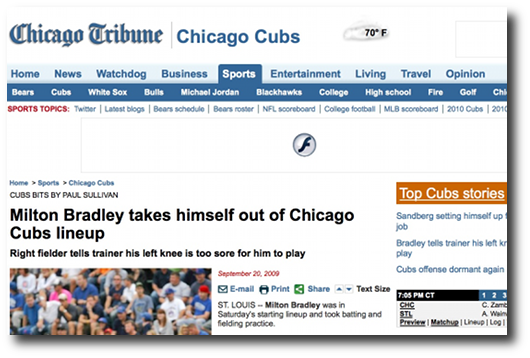I was just reading the online version of the Chicago Tribune sports section this morning, and I wrote a friend that I'd probably be willing to pay a small amount to read the Trib online. I wouldn't pay very much ... maybe $1 or $2 a month ... but I grew up in Chicago, so it's nice to read deeper stories about Chicago sports than I can find without looking around harder.

But on the flip side, there are so many free sources of information, that if the Trib were really to go down this road, and they wanted to charge more than this, I'd have to find my information somewhere else.
Analyzing my current thoughts
Examining my own thought process right now, it goes something like this:
- When it comes to Chicago sports, the online version of the Chicago Tribune has my business right now -- it's theirs to lose.
- If they charged $1 a month for this content, I would (a) first look around elsewhere and see if I could find good content without paying, and (b) I'd pay them if and only if I felt their content was better than anything else I can find for free.
Google's Eric Schmidt comments on this topic
My thought process here echoes what Dr. Eric Schmidt of Google said recently about Rupert Murdoch's plans to charge for online content:
"In general these models have not worked for general public consumption because there are enough free sources that the marginal value of paying is not justified based on the incremental value of quantity," he said.
"So my guess is for niche and specialist markets ... it will be possible to do it but I think it is unlikely that you will be able to do it for all news."
Would you pay?
In summary, I'd only pay for online content as a last resort, especially in tough economic times like this. I feel like I pay so much every year for services like cable and cell phone access, I'm not really looking to add any more recurring charges to my life ... especially if I can get very similar content somewhere else.



